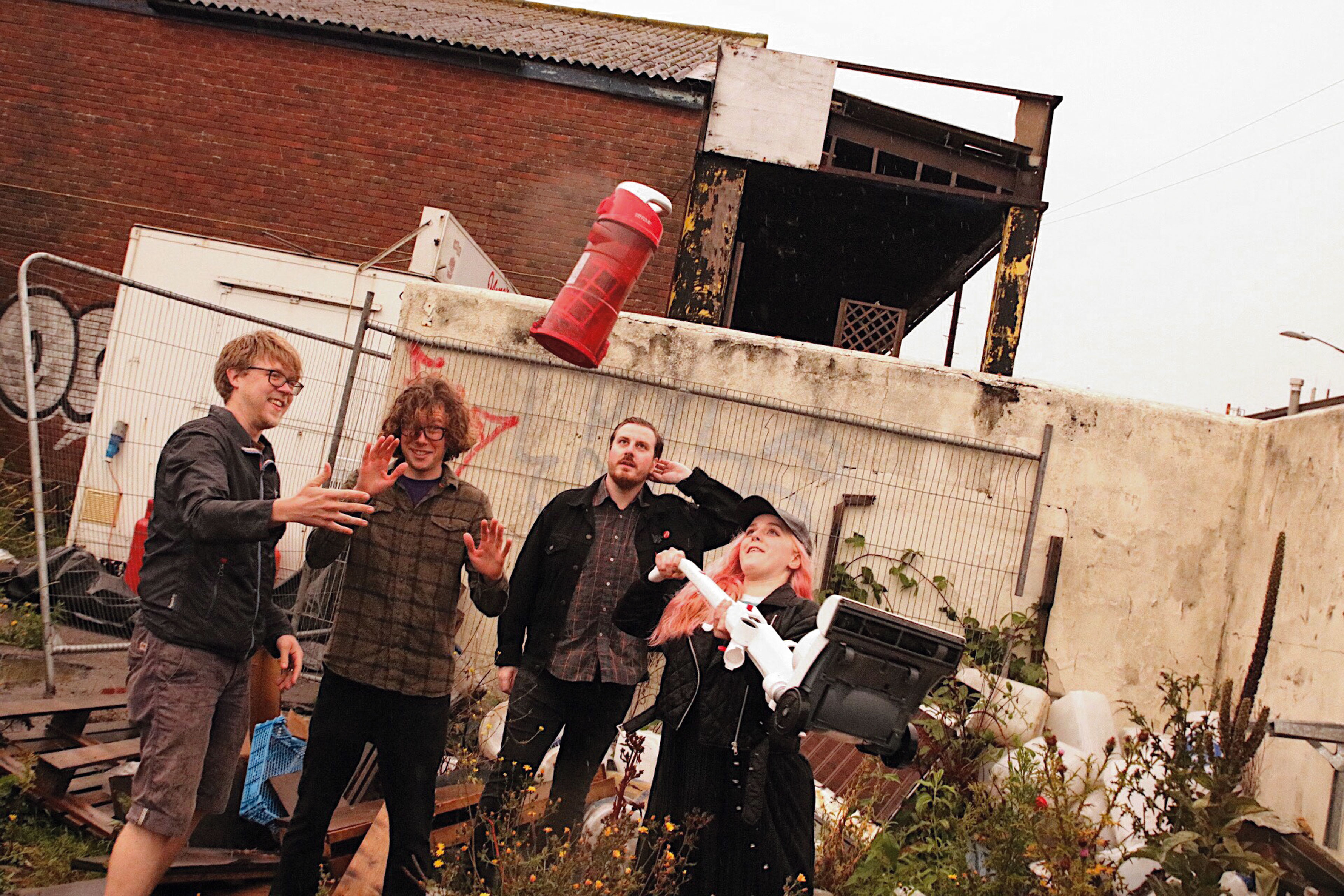Despite one third of Lower Slaughter living in Glasgow, the distance doesn’t get in the way of being a band as much as you would think. In fact, the band use it to their advantage. “We recorded our album just before Sinead moved so that wasn’t too much of an issue,” explains bassist Wakefield. “Sinead being so far from the rest of us does make practicing trickier, but it also makes everything much more special, because it just ends up being a bunch of pals catching up and getting together after some time apart. The rest of us work on the music pretty much weekly, and the beauty of the Internet Age means that we can send over our new workings to Sinead for her to work on the songs in her own time. The distance makes us pickier on when and where we place, too, which isn’t necessarily a bad thing.”
Lower Slaughter’s debut album, ‘What Big Eyes’ (released September 15th on Box Records), is testament to a welcomed theme that’s become endemic in recent times: eschewing the tamer aspects of indie and punk and dealing in something much angrier – no doubt thanks to the current political climate that has contributed to a new wave of bands being more lyrically political and musically noisier. I ask Barney whether this shift is simply a coincidence, and he’s quick to dismiss the idea of them being an angry band at all, even they do riff like Nirvana and Pissed Jeans. “We get called angry loads,” he says, “and I never understand it. We’re just loud – that’s as far as it goes. I see our music as party music, really.” “Like, fair enough, my voice has some grit in it,” says Sinead, “but at the same time it’s on the same trajectory as what many male singers have presented before. It doesn’t seem that people are as interested in commenting on their ‘inner rage’ of whatever.
“With regards to politics, it’s a trip – for sure. There are a couple of tracks on the album about our current (nightmarish) political climate. Brexit broke my heart and influenced my move back to Scotland.”
I refer back to what Sinead said about the glaring and unfair contrasts between the narrative on men and women involved in punk music. We talk about our mutual hatred of the way in which people in general like to emphasise and exaggerate the differences between men and women in bands, and agree that a lot of the time it’s done subconsciously. “I’m confused by people commenting on me being angry,” she says, “as if punk never existed and there are no men shouting at strangers in bands. Performing is just that – performing, and we all bring different things to the stage when we get there. The music is big and riffy, and the delivery of my vocals are just part of that big sound. I find this subtle, pervasive, misogynistic bullshit frustrating, but I mostly ignore it all so I can keep going on with my day!” Sinead joined Lower Slaughter late last year and I ask the band if her contribution has had much impact on their music: “Definitely!” said Barney. “Both lyrically and musically. Sinead joining made us explore new musical avenues and up our game. We can be more diverse with Sinead’s vocals and lyrics.”
I mention the darkness of Sinead’s lyrics – themes that are dealt with with literate proficiency and informed by ‘nerdy’ influences (Sinead’s words, not mine). “The lyrics are definitely darker since I joined,” she says. “I suppose that’s partly my response to the music, and what kind of imagery it conjures up for me. I’m a big fan of sci-fi and medieval fantasy, which informs some of the language I use. But overall the subjects are drawn from real life; my emotions and the world I live in”.
